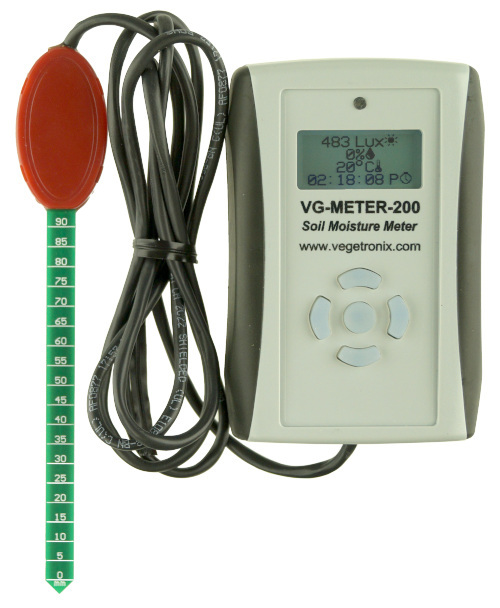Why Every House Owner Demands a Moisture Meter: Trick Advantages and Features
Why Every House Owner Demands a Moisture Meter: Trick Advantages and Features
Blog Article
The Ultimate Guide to Moisture Meters: A Comprehensive Review and How They Can Save You Cash
Dampness meters offer as vital tools in discovering and keeping an eye on moisture material in products, assisting in protecting against expensive damages and making sure the high quality of products. Recognizing the subtleties of various kinds of dampness meters, their applications, and the prospective cost-saving benefits they provide can be a game-changer for experts and companies alike.
Types of Dampness Meters
Various sorts of moisture meters are available for different applications in numerous industries. One usual type is the pin-type wetness meter, which gauges the electrical resistance between two pins placed into a material. This type is appropriate for timber, drywall, and various other structure products. Pinless moisture meters, on the other hand, use electromagnetic sensing unit plates to check a bigger location without creating damages to the product's surface. Moisture Meter. These meters are suitable for promptly assessing moisture levels in big areas such as floors and walls.

Infrared dampness meters determine the thermal residential or commercial properties of a product to determine its moisture content non-invasively, making them helpful for applications where pin or pinless meters might not be suitable. Understanding the different types of moisture meters readily available can assist sectors pick the most ideal tool for their certain moisture measurement demands.

Benefits of Using Wetness Meters
Wetness meters provide vital benefits in precisely monitoring and assessing dampness degrees in varied materials and atmospheres. One of the primary benefits of using moisture meters is the prevention of possible damages created by excess dampness.
Furthermore, making use of moisture meters can lead to raised energy performance. In agricultural setups, moisture meters play a crucial function in maximizing crop returns by allowing farmers to keep track of dirt wetness degrees and make notified watering decisions.
How to Select the Right Dampness Meter
When choosing a dampness meter, it's essential to ensure that the meter is ideal for the details product you will be screening. Various materials have varying electric properties that can influence wetness readings, so selecting a meter made for your product is essential for accurate outcomes. By meticulously reviewing these aspects, you can select a moisture meter that fulfills your requirements and provides exact wetness dimensions for your jobs.
Proper Strategies for Wetness Meter Usage

Expense Cost Savings With Wetness Meter Applications
Exactly how can the calculated application of dampness meters bring about substantial price financial savings throughout different industries? Wetness meters play a vital duty in expense savings by avoiding prospective damage and making sure quality assurance in different sectors. In the agriculture sector, dampness meters help in figuring out the ideal time for collecting plants, avoiding over-drying or excess wetness that can influence the last product's top quality. This accurate surveillance assists farmers avoid unnecessary losses and directory maximize their yield.
Similarly, in construction, moisture meters help prevent expensive problems by identifying click to read dampness degrees in building products, such as timber or concrete, which can bring about architectural issues if not addressed immediately. By recognizing trouble areas at an early stage, contractors can take rehabilitative procedures to avoid substantial repair work or substitutes, eventually saving time and cash.
Additionally, in the food processing sector, moisture meters are necessary for keeping track of product quality and ensuring conformity with security guidelines. By properly gauging dampness web content in foodstuff, producers can stop perishing, maintain freshness, and reduce waste, causing considerable cost savings. Generally, the calculated application of dampness meters is an important investment that can lead to substantial cost reductions and enhanced effectiveness across different markets.
Final Thought
In verdict, dampness meters are useful tools for gauging and finding dampness degrees in numerous products. By using the appropriate wetness meter and adhering to hop over to here correct strategies, customers can properly avoid expensive problems created by excess moisture.
Dampness meters offer as indispensable devices in identifying and monitoring moisture web content in products, aiding in protecting against costly problems and making certain the high quality of products. Infrared dampness meters determine the thermal residential properties of a material to establish its moisture web content non-invasively, making them beneficial for applications where pin or pinless meters may not be appropriate.Moisture meters provide very useful benefits in properly analyzing and checking wetness levels in varied materials and settings. In farming settings, wetness meters play an essential function in optimizing crop returns by allowing farmers to keep track of soil wetness levels and make notified watering choices.In conclusion, moisture meters are beneficial tools for discovering and determining moisture levels in various materials.
Report this page